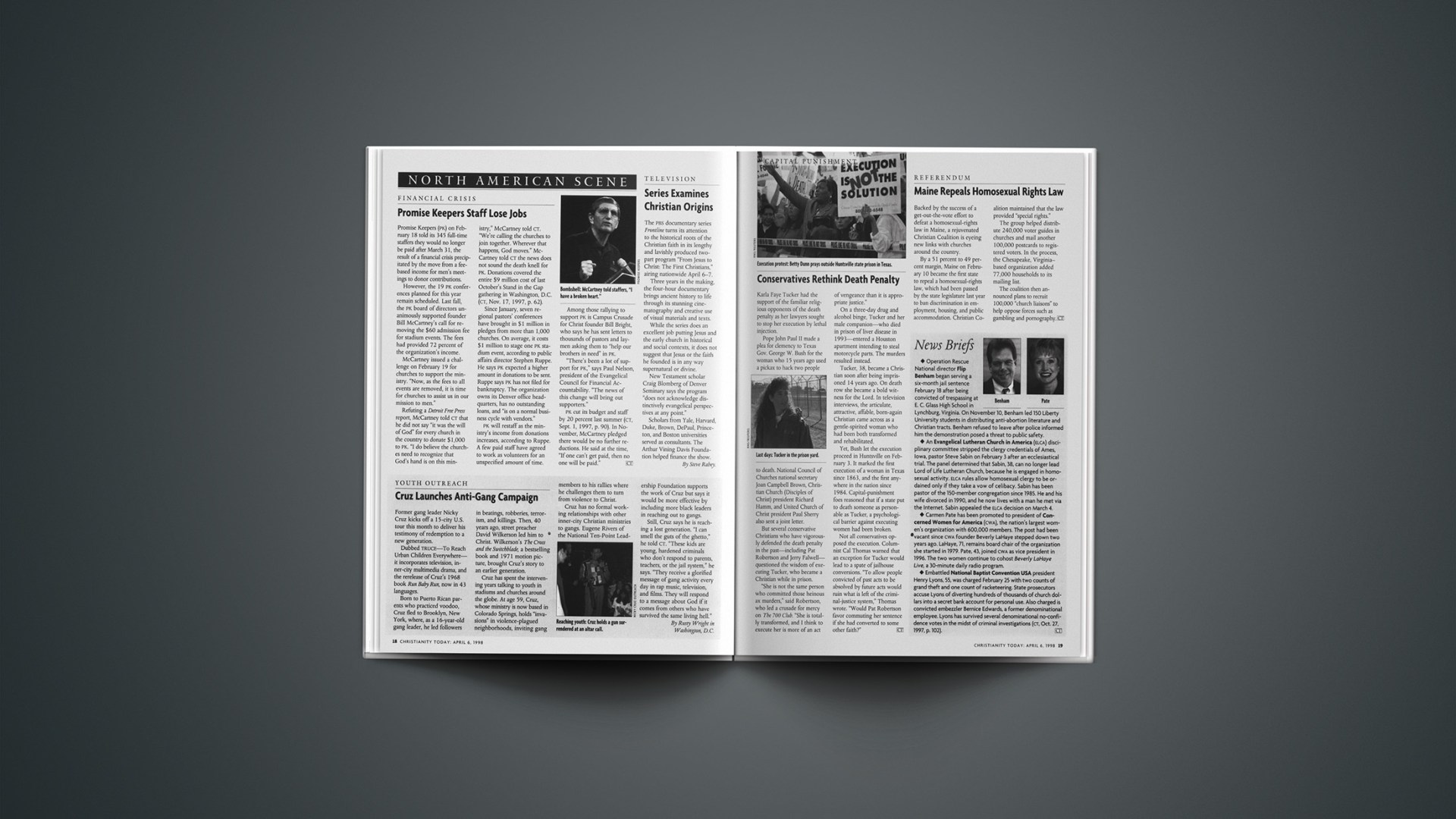Karla Faye Tucker had the support of the familiar religious opponents of the death penalty as her lawyers sought to stop her execution by lethal injection.
Pope John Paul II made a plea for clemency to Texas Gov. George W. Bush for the woman who 15 years ago used a pickax to hack two people to death. National Council of Churches national secretary Joan Campbell Brown, Christian Church (Disciples of Christ) president Richard Hamm, and United Church of Christ president Paul Sherry also sent a joint letter.
But several conservative Christians who have vigorously defended the death penalty in the past—including Pat Robertson and Jerry Falwell—questioned the wisdom of executing Tucker, who became a Christian while in prison.
“She is not the same person who committed those heinous ax murders,” said Robertson, who led a crusade for mercy on The 700 Club. “She is totally transformed, and I think to execute her is more of an act of vengeance than it is appropriate justice.”
On a three-day drug and alcohol binge, Tucker and her male companion—who died in prison of liver disease in 1993—entered a Houston apartment intending to steal motorcycle parts. The murders resulted instead.
Tucker, 38, became a Christian soon after being imprisoned 14 years ago. On death row she became a bold witness for the Lord. In television interviews, the articulate, attractive, affable, born-again Christian came across as a gentle-spirited woman who had been both transformed and rehabilitated.
Yet, Bush let the execution proceed in Huntsville on February 3. It marked the first execution of a woman in Texas since 1863, and the first anywhere in the nation since 1984. Capital-punishment foes reasoned that if a state put to death someone as personable as Tucker, a psychological barrier against executing women had been broken.
Not all conservatives opposed the execution. Columnist Cal Thomas warned that an exception for Tucker would lead to a spate of jailhouse conversions. “To allow people convicted of past acts to be absolved by future acts would ruin what is left of the criminal-justice system,” Thomas wrote. “Would Pat Robertson favor commuting her sentence if she had converted to some other faith?”
Copyright © 1998 Christianity Today. Click for reprint information.










